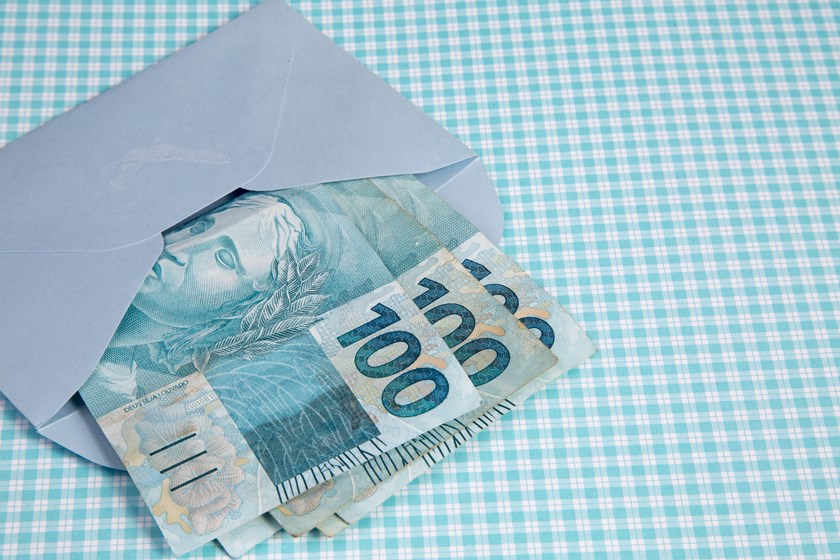RIO DE JANEIRO, BRAZIL – Even in times of rejection and discredit, political parties have increased their revenue through donations designed to sponsor their activities. Last year alone, major entrepreneurs and other donors contributed R$106 million (US$27 million) to the 35 parties registered in Brazil, an amount 19 percent higher than the R$89 million received in 2017.

The money was not used directly for election campaigns, but for the political parties’ cash operations; they also received R$889 million from the government Partisan Fund. On the list of “sponsors” are families controlling large business groups.
Since 2016, political parties have been banned by the Federal Supreme Court from receiving funds from companies to finance campaigns and their operation. Entrepreneurs, however, keep donating, but as individuals, according to data collected by newspaper Estado from the Superior Electoral Court (TSE).
The practice is legally permitted and does not result in tax deductions for the donor. Basically, there are no limits on individual contributions, but parties can only transfer the equivalent of ten percent of each donor’s gross income to campaigns.
This scenario, however, is already causing discomfort among parties more dependent on public resources, which threaten the vote on a project that would limit private donations to up to ten minimum wages per person.
The largest donation last year was made by the São Paulo Finance Secretary, Henrique Meirelles. With a declared wealth of R$377 million, Meirelles donated R$900,000 to MDB, his party, and R$600,000 to PSD, to which he was previously affiliated. Meirelles competed in the presidential election, funded his own campaign with R$57 million, and finished in seventh place (1.2 million votes).
From the “individual” account of businessman Rubens Ometto, controller of Cosan – one of the largest companies in Brazil, with businesses in the areas of energy, logistics, and infrastructure -, R$1 million was allocated to parties ranging from the right-wing to center-left. DEM received R$500 thousand. To PSB and PDT he transferred, respectively, R$450 thousand and R$50 thousand. “The donations were made on a personal basis and followed the established rules,” Ometto said.
Flávio Rocha, from Riachuelo department stores, also donated R$1 million last year. The budget was divided: R$570,000 to Podemos and R$430,000 to Republicans. One of the leaders of the Brasil 200 group of entrepreneurs, Rocha said the parties’ reward for donors is to promote a “political renewal”. Last year, he even launched his pre-candidacy for the PRB, the current Republicans, but withdrew from running for the presidency. “We must be part of the electoral process, strengthen the parties and democracy,” he said.
Outside the central power and with a significant reduction of its benches in Congress, PT was the party that received the most donations last year: R$21.5 million. In relation to 2017, the party registered a five percent drop in revenue, obtained mainly from the wide base of affiliates, congressmen and occupants of positions in the public sphere, who, as a rule, should contribute monthly to the party’s finances. PT’s largest individual donor was businessman José Ricardo Rezek, from the agribusiness, real estate, and technology group having the family’s name. He donated R$200,000.

Networks
Founded four years ago, Novo is already the party receiving the second-most contributions. Under the banner of ending public funding for parties and candidates, Novo campaigned on social media to raise funds and achieved the biggest leap registered in nominal numbers: from R$8.8 million in 2017 to R$17 million in 2018. Considering the 150 largest party donors, who donated more than R$40,000, one in five donated money to the party led by João Amoêdo, a former bank executive.
Rafael Sportelli, from Aethra, an auto parts producer and exporter in Contagem (Minas Gerais State), transferred R$950,000 to the party last year, the highest amount recorded. The CEO of car rental agency Localiza, Eugênio Pacelli Mattar, personally contributed R$930,000. He is the brother of Jair Bolsonaro’s special secretary for privatization and divestment, Salim Mattar. Although sympathetic, the two are not affiliated with Novo. Eugênio said the contributions are not linked to their business activities. “It represents citizen support for causes considered important.”
Among the top ten party financiers, there are names linked to the financial market, ruralists, and businessmen in the fields of energy, health, education and clothing, some with experience in public office and prior disputes for elective mandates. The list of the largest recipients includes center and left-wing parties: PSDB, MDB, PDT, PSB, PCdoB, DEM, PP and Republicans.
Banking fortune heirs account for 66 percent of the money donated to Rede, the party led by former minister Marina Silva. Rede’s main donors are sisters Elisa and Beatriz Sawaya Botelho Bracher, with R$840,000, and Neca Setubal, with R$322,000 – three of Itaú’s shareholder families – in addition to Daniela Maria, Gisela Maria and Mariana Moreau, with R$849,000, linked to the Paraguaçu Participações Holding.
PSL – Jair Bolsonaro’s Party
With the arrival of President Jair Bolsonaro in the PSL in 2018, the party attracted entrepreneurs from different sectors and multiplied its revenue. A year earlier, it had recorded only R$308,000 in donations. After Bolsonaro’s affiliation, R$2.8 million were received. Former deputy and then-candidate for senator Wilson Picler, owner of the educational group UNINTER, in Curitiba, capital of Paraná, donated R$800,000.
PSL also won R$50,000 from ruralists, such as soy producer Pedro Ribeiro Merola, from Santa Fé Farm, in Goiás State, and fishing entrepreneur Jorge Seif, father of the current secretary of Fisheries, Jorge Seif Júnior.
Source: O Estado de S.Paulo.

